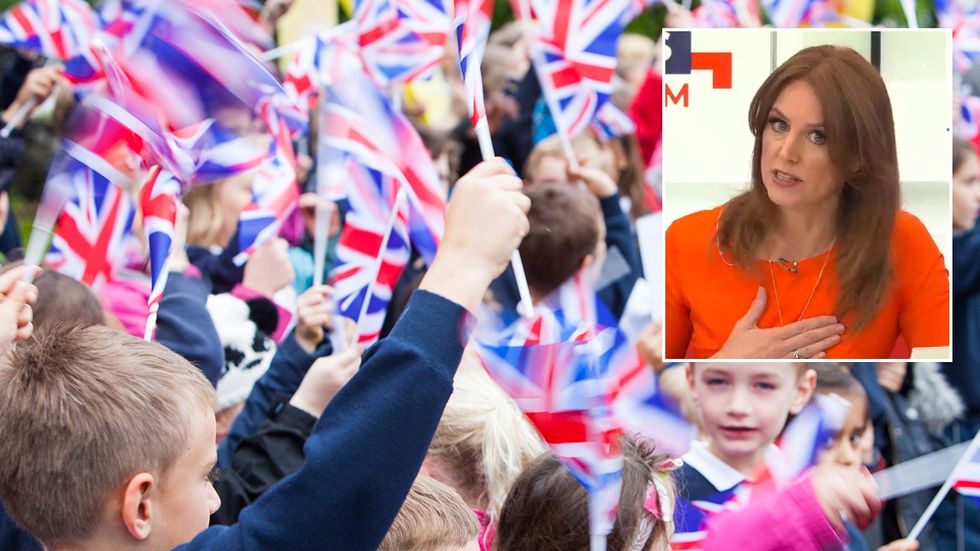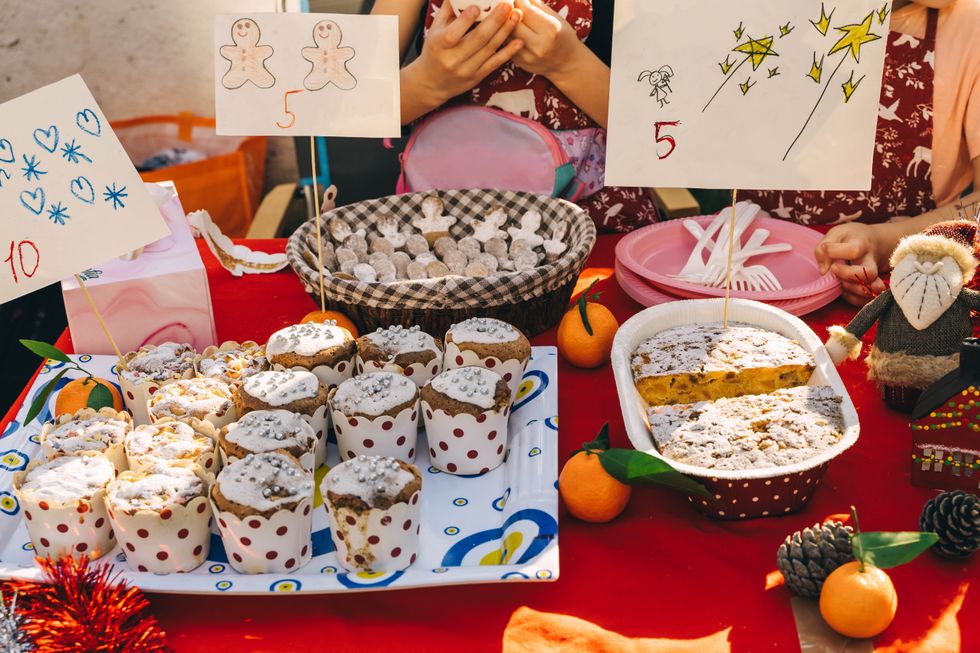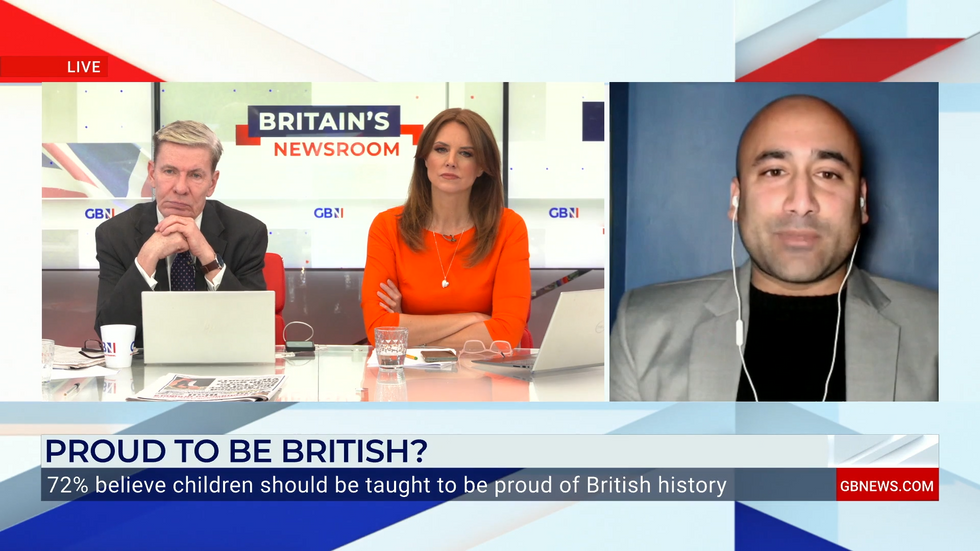GB News presenter Bev Turner has expressed her outrage at the growing “shame” Britons feel about their country and history, as a new study has found almost three quarters want children to be taught to be proud of Britain.
The survey, carried out by Policy Exchange, concluded that ethnic minorities “emphatically reject the view of some white progressives that it is wrong or racist” to be taught to be proud of Britain’s history.
Respondents of the survey cited notable events including the World Wars, the Magna Carta, the Industrial Revolution and the abolition of the slave trade as examples of Britain being “a force for good in the world”.
Reacting to the data, Bev Turner questioned when Britons “became ashamed” of their culture and history, and when the pride for Britain changed.

Bev Turner hit out at the lack of British pride following the results of a new survey
Getty / GB News
Offering an example from personal experience of Britain being “shamed”, Bev recalled a school summer fete being forced to “not display Union Jacks and St George’s flags” following a comment made by a concerned parent.
Bev explained: “A summer fete at a local school near me, just last summer – one of the mums said should we put out some Union Jacks on the afternoon tea stall?
“And one of the other mothers said, ‘I think that’s a little problematic, don’t you?’ And they decided not to put Union Jacks and Saint George’s flags on the afternoon tea stall at the summer fair.
“Because it might upset the parents who were not inherently British.”

Bev Turner revealed a school chose not to display Union Jack flags as one parent deemed them ‘problematic’
Getty
Offering his analysis of the data and Bev’s anecdotal example, Dr Rakib Ehsan said British schools are “not doing enough” to teach children to be proud of British history and heritage.
LATEST DEVELOPMENTS:
Ehsan told GB News: “I don’t think we’re doing enough at all. I think that in recent times, we’ve seen a culture of insecurity gain a foothold in our education system, a culture of self-flagellation.
“And I think that there are far too many people in particular sectors of British life that have a fundamentally warped view of British history, heritage and traditions.”
When asked by Bev for his thoughts on why Britons have become “ashamed” of our history, Ehsan claimed: “In recent times, we’ve become more ethnically, racially and religiously diverse. But I think the issue is the very kind of people that you’re referring to, they haven’t done well when it comes to diversity management.
“And quite often they’ve tried to speak on behalf of ethnic minority families and communities, almost being outraged and offended on their behalf as well, instead of actually engaging with them and actually hearing their views on British history, heritage and traditions.”

Dr Rakib Ehsan says many people try to ‘speak on behalf of ethnic minorities’ to express concerns
GB News
When pressed on what he thinks British schools should be teaching to children about British history, Ehsan told GB News: “I think there’s many things that I’d like to see – actually a celebration of the working class, anti-racist traditions in this country, which going back centuries.
“For example, the 1862 Manchester mill workers who refused to work with American origin slave-picked cotton. And then we had the Battle of Bamber Bridge. During the Second World War, we had working class pub, pub landlords in the Lancastrian village telling American commanders, no, we’re not going to enforce a colour bar here.”
He continued: “Those kind of things, very real and very important historical moments should be celebrated. And I think more generally, we should celebrate the contributions that Britain has made and to the progress of humankind in terms of the industrial revolution, scientific innovation, respect for the rule of law and parliamentary democracy.
“Those are the kind of things that I’d like to see more in terms of our children being taught to celebrate and appreciate their own national history, irrespective of their own background.”